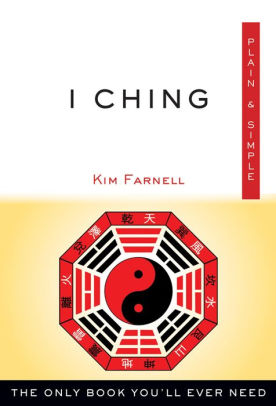The legendary origin of the I Ching (The Book of Changes) came from China's first emperor, Fu-Tsi, who was inspired by the markings on the back of a tortoise's shell. The book is said to be 3,000 years old. The I Ching is used to clarify one's current situation, and operates in the nature of an advisory oracle rather than a predictive one. The questioner is responsible for taking action or avoiding things to improve their own future. The book migrated to Europe through a Jesuit translation in the 1730s. The Wilhelm edition was published in 1923. Numerous other editions and modifications of this oracle system have been produced since then with the aim of making the I Ching more accessible and easier to use.
That is precisely the point of this edition. Farnell breaks down the information into easy sections. She begins with the core principles of yang and yin. Methods for casting one's oracle are described. The building blocks of the oracle, the eight trigrams (3-line figures), are described.
The bulk of the book (pp 42 – 168) is occupied by the 64 hexagrams and their meanings. The descriptions for each hexagram are updated condensations of much more lengthy and arcane I Ching texts. There are also descriptions for the potential moving lines that may occur in a cast. This is unusual but helpful content in a basic text, as many simplified editions omit these passages that make the oracle more specific to the caster’s situation. Farnell’s interpretations streamline and eliminates obscurities arising from the indefinite nature of ancient Chinese ideographs.
The final pages of the book are extremely condensed quickie interpretations of the 64 hexagrams (pp 172-182).
As promised, this is a simple, straight-forward edition of the I Ching. All the reader needs is three coins to perform the casts! The format is clear and the hexagrams are easy to look up. This book is suitable for beginners and first-time users of the oracle.
~review by Elizabeth Hazel
Author: Kim Farnell
2017, Hampton Roads Publishing (Red Wheel/Weiser)
183 pgs, $14.95 pb.
(reprint of “Simply I Ching” 2008 by Sterling/Zambezi Publishing, UK)

